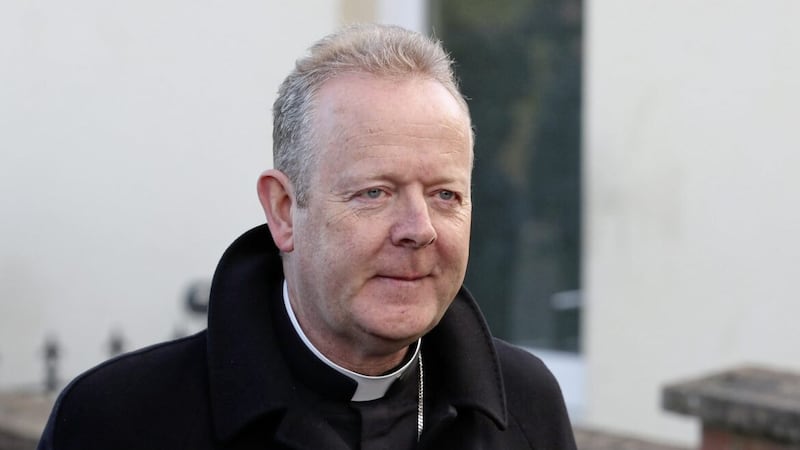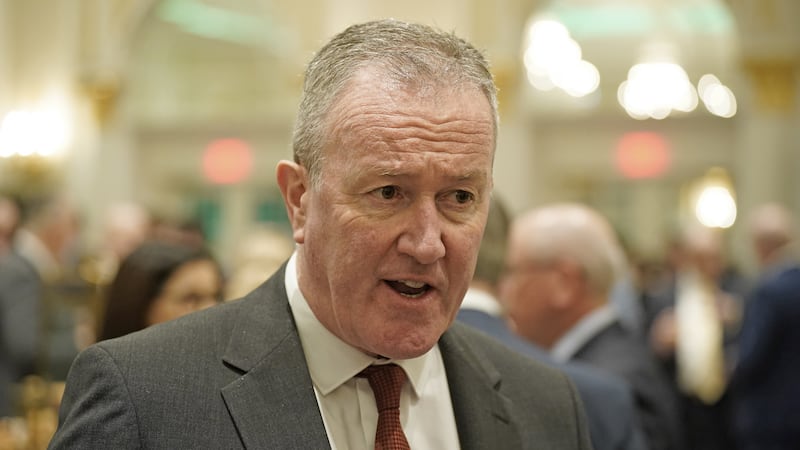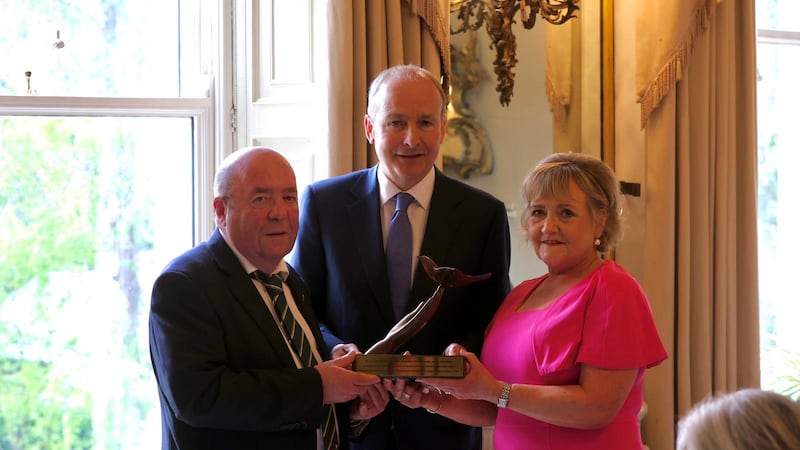Catholic and Protestant church leaders have said that controversial British government legislation on dealing with the past “will not achieve any of its purposes”.
The The Northern Ireland Troubles (Legacy and Reconciliation) Bill is due before the House of Lords today.
Under the proposed legislation, which has been dubbed the ‘Bill of Shame’ by some opponents, only inquests which have reached substantive hearing stage a year after the bill will be allowed while civil cases have been stopped.
Immunity from prosecution will also be offered in some circumstances.
Catholic Archbishop of Armagh Eamon Martin and Church of Ireland Archbishop of Armagh and Primate of All Ireland John McDowell have penned a joint response to the disputed proposals, which have provoked cross-community anger.
In the article, which first appeared in the Financial Times, the senior clerics said the “legacy of the Troubles remains an open wound and the frailest of seams in our political and social life”.
“There is no universal remedy for this great pain, but there can be honesty, integrity and compassion in trying to find the best way forward,” they say.
The church leaders were also critical of the plans.
“The promoters of the Northern Ireland Troubles (Legacy and Reconciliation) Bill, which begins its journey through the House of Lords this week, have effectively set aside the toil and goodwill of those who have been journeying with victims for decades,” they said.
“They may say that they are ‘listening’ but the fact that they have produced a bill so heavily weighted in favour of the perpetrators of violence suggests otherwise.”
Some opponents of the bill believe it has been designed to protect British state actors from legal accountability.
The church leaders suggest the proposed legislation has set a low threshold for immunity.
“The bill contains provisions that set the bar for immunity from prosecution pitiably low, effectively granting an amnesty, and will not, in all likelihood, provide relatives with the quality of information for which they have yearned for so long,” they said.
They also identify other points of concern.
“There are other issues, too,” they wrote.
“Virtually all independent legal opinion that we have seen casts serious doubt on whether the case ‘review’ provisions of the bill will comply with the provisions of Article 2 of the European Convention on Human Rights which require access to a proper investigation of loss of life.”
Bishops Martin and McDowell also questioned the title of the disputed bill.
“Moreover, anyone with a basic understanding of paramilitary culture in Northern Ireland could not expect many perpetrators to risk offering their accounts for the record,” they said.
“From an ethical point of view, and not just a Christian one, the inclusion of the word ‘reconciliation’ in the title of the bill - and its liberal scattering like fairy dust throughout the provisions - remains a mystery.
“Reconciliation in both the religious and civil senses involves the restoration of relationships; it requires patience, the slow building of trust leading to courageous truth telling, and immense forbearance.
“Nothing in this bill goes anywhere near providing the environment for that to take place.
“Perhaps the very opposite.”
The church leaders said secretary of state Chris Heaton-Harris has taken on the role similar to a commissar in relation to the legacy bill.
“The individual at the heart of this bill is not the victim - rather, they are a strange hybrid of the perpetrator and the secretary of state for Northern Ireland for the time being,” they said.
“The latter is given powers to appoint personnel, make regulations regarding its work, issue “guidance” on the immunity process, initiate reviews, direct a response to historical findings, appoint those responsible for the historiographic work and control the overall budget.
“In other words, it grants the secretary of state the powers of a commissar rather than a minister of the crown.”
And they added: “This bill will not achieve any of its purposes.
“On the contrary, it will deepen division and further demoralise all but a tiny minority of those it purports to help.
“It seems almost as though it has been designed to fail.”








